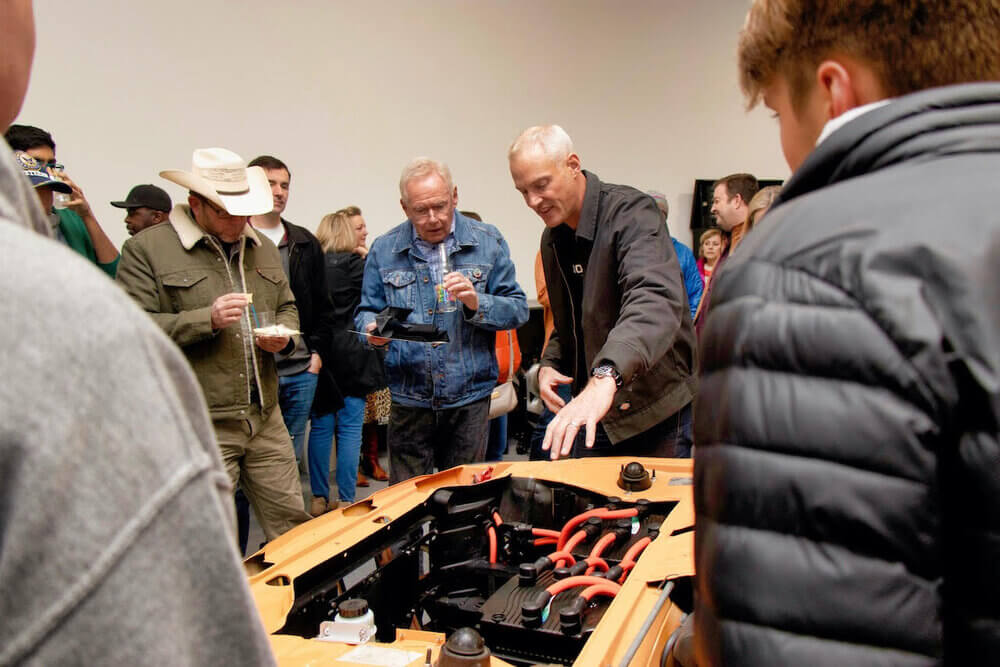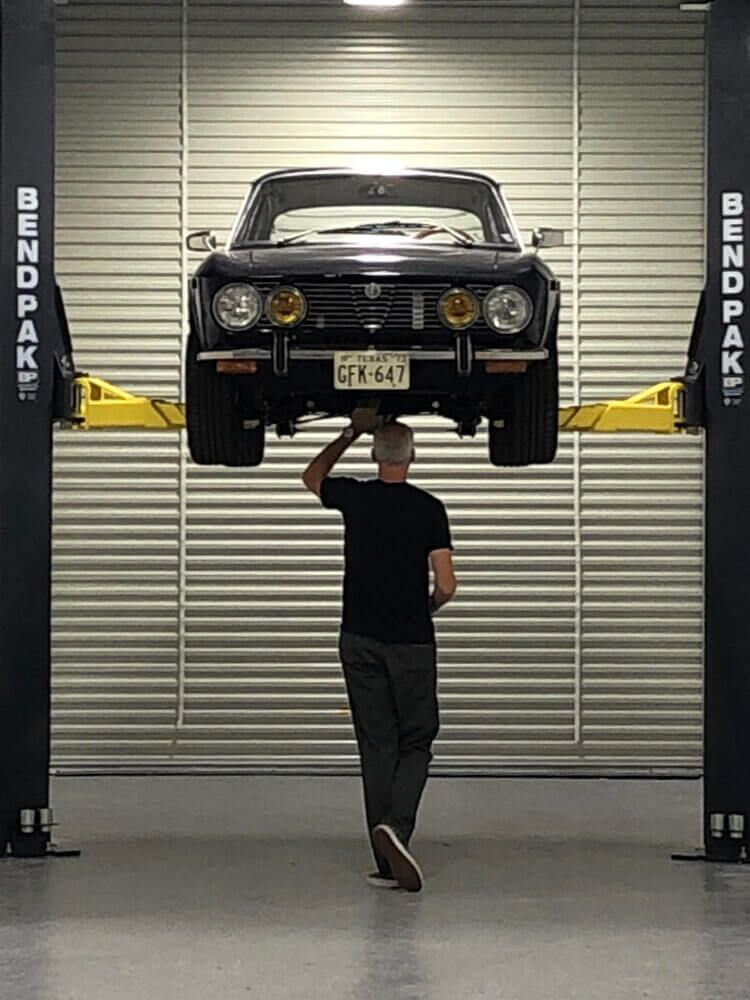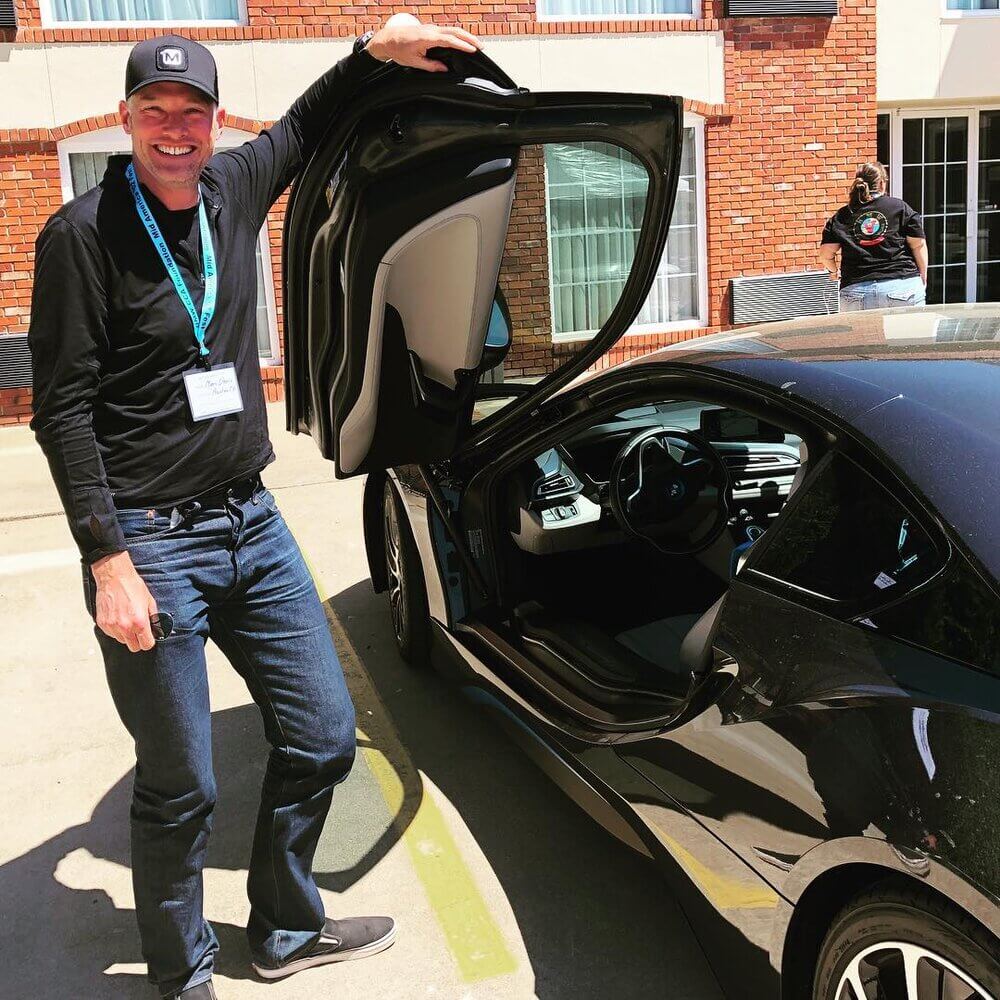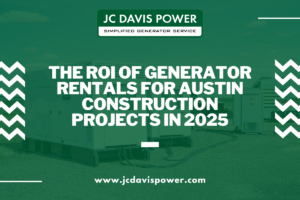“Life is full of choices and you need to make them wisely. Once you find what fulfills you and what you are passionate about, you’ll choose the right path.”
Many of us don’t often take time to reflect on our careers, what it took to get here and where we’re headed. As part of an ongoing series we’re interviewing professionals in and around the automobile and electric automobile industries to share their stories and wisdom for younger professionals to consider as they forge their own careers. Marc is the owner and founder of moment motors, a leader in classic car-to-electric conversions.
JCDP:
How did you get started in your career?
Marc Davis:
Well, I guess we’ll go back to college. Growing up, I was always a mathematically and science-minded kid. As my senior year approached, I was considering which path to take in my career. I did a little bit of investigation and had conversations with some of my parent’s friends until eventually landed on the notion that I wanted to be an engineer. It was not a career that I really understood or knew. My upbringing didn’t expose me to it and my friends were very artistic, so going after this really felt a little bit like going off alone. I went to engineering school and decided to focus on computer science. This was the early ‘90s and I felt like the best opportunities seemed to be in and around computer science since all of this fascinating stuff was happening.
It’s important to note that all throughout my life I’ve always been a car guy without the means. My family didn’t have fancy exciting cars to drive or to work on, but since birth, my mother will tell you, I was an absolute car nut. I would stand trembling in front of the Hot Wheels at the toy store; it was in my blood all throughout my childhood. I was obsessed with cars. I knew everything about them from the make to the model. I don’t know where that interest came from because it wasn’t a family thing for me. As much as I loved cars, I never felt like that was something that could be a career. I really thought it would only be a passion of mine, something I could do on the side.
I went through college and graduated with an engineering degree, focused on computer science. I really dove into the software industry in the mid-’90s, starting off at a big corporation, IBM. Quite honestly, that experience, although interesting and educational, was not very fulfilling, mostly due to all the reasons that people say about large corporations. There was a lot of bureaucracy and sluggishness, plus at that particular time, the economy wasn’t terribly good. It felt like I had stepped into something that was more weighty than I ever intended, but it gave me the inspiration to seek other opportunities.

“… maybe I can combine my engineeringbrain,passion for cars, and the hotrod community.”
In the mid-’90s, there was a big boom in the enterprise software world specifically. There were a lot of startups that were making huge waves in the enterprise software and that’s what I was able to hop on. It was a really exciting, compelling and fun experience. I followed that path for a while until I made a critical decision that I don’t know that I regret, but it certainly caused me to go down a path that in the end I was not happy with. I followed what was lucrative, not what I was passionate about. I had decent communication skills which, combined with my technical knowledge, made me a pretty good recruiter candidate. So, I entered the recruiting side of the world.
First, I recruited internally at the software startup that I was working at, and then in the 2000s, I started my own headhunting agency. I tried to convince myself that this was the right thing to do because it seems like the right combination of my skills if you will. Fast forward 15 years later, I’m doing something that made me good money and I was able to do it well but was incredibly unfulfilled. Not only was I miserable, but also extremely disenchanted with everything going on in my career. The recruitment path led me towards something that was shiny and sparkly from the riches perspective but fundamentally was not for me. It brought me to a stage in my life where I had built a business, created this living for myself, employed people, and was well-known in my industry in Austin at least, and I hated it.
I handed off my company to the employees and I took some time to go back to the first principles about what I felt I wanted to do with my life. It obviously coincided with me being in my 40s, as well. It was a midlife crisis mentality and I realized that this whole time I’d been living my life the way I thought I was supposed to do, which was to make money doing the work you can do best and then use that money and success to go do the things that you want to do in your spare time. The whole time I had a massive garage filled with project cars, fun hot rods and custom cars. I was welding, fabricating, pulling things apart and rebuilding as my hobby. Originally, I got on this current career track because I felt like I knew that in my heart of hearts I was an engineer who was born to solve problems. I got way off track, specifically because I was ignoring this passion of mine around the automotive industry. It was something that I had kind of just written off a long time ago. I thought, well, maybe now is the time to start thinking about how I could put these interests together and leverage my engineering capabilities and skills to dive into something that I could get really passionate about. That was when the idea for the electrification of classic cars came to me.
Certainly, I didn’t invent this concept by any stretch. This was something that people had been doing for a long time and converting cars to electric vehicles has been around for decades. I did find that we had moved in this industry to a point where conversion made no sense for daily boring transportation. Conversion was something that was potentially an exciting new way to evolve a classic car. It’s a form of transportation that we all idealize or look at and find beauty in, yet anybody who’s ever stepped into it realizes this is a big commitment to run and drive the car daily that has a 50-year-old internal combustion engine drivetrain. The advancement of electric propulsion technology is the point of really high performance and also really capable. These were not glorified golf carts we were going to build, these were actual high performing motors. The result was an incredibly exciting and enjoyable experience.
I thought, maybe this is something that I can put my engineering brain to bring my passion for cars, my experience and the hotrod community. More importantly, I could bring together the people that I’ve met through all of these facets of my life and say, “Hey, why don’t why don’t we try to do something here?” That’s what led me to start Moment Motor Company back in 2017.
I had spent a year figuring out the prototypes, figuring out exactly how we could position things and how we could build the product. I teamed up with a very good old friend of mine from engineering school, as well as some of the folks that I’d met from the hot rod community and pulled them together to start making cars.
JCDP:
I find that very often life and success are not a straight and simple path.
Marc Davis:
Don’t you wish you were one of those people who just knew at age five that they were going to be a drummer?
That transformation that I was talking about, where I was miserable with what I was doing and I left the company to my employees, then focusing on figuring out what I was going to do… that was a big deal for a lot of reasons.
One, I took a year to make that decision. My loving wife had to carry the burden of supporting our family throughout that transition. As you said, I think I had the exact same thought as you, like how lucky are those people who wake up one day when they’re five and they say, “I want to play drums.” They put in their 1,0000 hours on the drums before they’re twelve years old and all of a sudden they’ve achieved their dream. They’re on top of the world and more importantly, they’re doing something that they absolutely love. It’s easy to think, well, why can’t that be me who just has it figured out?
I assumed that the possibility of doing what I loved was probably long gone, given my age. That’s the mentality you suddenly get once you hit midlife and that’s why they call it a crisis. You really do feel like you’re heading down the other side of the mountain and you’re questioning if you want to see the other side at all. I knew I needed to make a change. It wasn’t just that I needed to find a new job, it was that I really needed to figure out what I wanted to do with my life.
I think the big message that I pulled out of this transition is this. I was chasing happiness, because I was miserable but I started to realize after a while that happiness is not a perpetual state. Happiness is not really what you are pursuing, you’re actually looking for, in my opinion, fulfillment. We all need to feel like what we’re doing matters.
If you go back to what I was saying earlier, I became an engineer because I liked solving problems. I eventually realized I was an engineer for a reason, because that problem solving gave me fulfillment. The recognition of what made me feel good inside is to see a problem and take an approach to try to fix it was incredibly fulfilling to me.
We can all be happy sitting with a gin and tonic in our backyard with the birds chirping. Imagine if that’s all you did every day, it would get old. You would feel like a bum. That type of happiness people seek is a fleeting feeling. What you should be doing is thinking about what makes me fulfilled and when I get that feeling of fulfillment, where’s it coming from?
It’s true that the base level of my fulfillment comes from solving problems. So, yes, I could have been an engineer focused on airplanes or whatever it may be, and I’m sure I would find it somewhat fulfilling, but my passion was within the auto industry. I figured out I could focus on what gave me fulfillment and be in an industry that I was extremely passionate about. That was the magic combination. Passion and fulfillment.
I am now working every day to be challenged and stimulated by solving the problems I have, but I’m also doing it in a context that I just am truly over the moon excited about. That combo of passion and fulfillment is something that I never really appreciated until I had the opportunity to do it.

JCDP:
What was the biggest challenge in actually launching this as a business and getting it off the ground?
Marc Davis:
I think that the biggest challenge of any business like this is to get your first customer to take a risk. If you’re going to do something for the first time, that first customer needs to be somebody willing to take that risk. If you’re going to build a house or a car or a piece of furniture for the first time, whoever is buying that first product from you has to trust you. Finding those initial customers, I believe, will always come from your network, which is why your network is so important to continue to build as you grow. The people that you work with and the impression that they have of you is more critical than every dollar you make or any titles that you achieve.
If you have strong relationships and a good reputation, people will believe in what you are seeking to do. When I left the engineering career that I had at a software company and went off to start my headhunting recruiting agency, I had to find my first customer. I had to find somebody that would be willing to pay me to find talent. And lo and behold, the first people who were my customers were people that I used to work with, who knew I was capable and had skills, and that I was honest and trustworthy. I delivered and I asked them to recommend me to their friends, which they did! That core group of people that I had from building these relationships through the initial years of my career were the absolute key for being able to start a new business.
The first handful of cars that we did were all for people in my network.
JCDP:
What was that first car that you converted?
Marc Davis:
It was a 1968 Porsche 912. It was beautiful.
JCDP:
And you use Tesla battery packs correct?
Marc Davis:
Yes, we are primarily now. The product is so good. The batteries are one of the major innovations and they have the highest energy density of any battery technology on the market. We work with used batteries, which doesn’t sound good, but there’s a couple of reasons why that’s not necessarily the perspective that one should have.
One, is they are so good they have very minimal degradation, so even though the batteries have been used, their technology is so good that it doesn’t degrade their performance very dramatically at all.
Two, you’re getting a set of batteries that essentially have been tested. They’re coming out of a car that ran for 20,000 miles, give or take, so you’re avoiding any manufacturer defect situation that you might get if you got it off an assembly line.
Three, if you have any sort of ecological motivation for doing this, there’s a beauty in the fact that these cars are being reborn and the parts that we’re using are being reborn.

“The reason that I named my company Moment is that I believe if you’re a car person, there’s a moment that you became a car person.”
JCDP:
How do you see your industry changing and what are you doing to prepare for that?
Marc Davis:
With any emerging nascent industry, it starts out small and with a lot of individuals doing it, and we’re at that phase right now where everybody and their brother is coming out with similar products.
The reason that I named my company Moment is that I believe if you’re a car person, there’s a moment that you became a car person. There’s a moment that you saw this car driving down the street and thought, “I will own one of those someday.” Maybe it was the car that you put on your locker when you were in high school.
I understand how personal cars are for people, so I ask what is your moment? I know how important that moment is and how special it is to people because I have them. The initial goal of my company was to give people that moment. One day they saw this 1966 Mustang and down the line, they finally had enough cash in their bank accounts to go buy one. Soon they realize this is going to be a maintenance nightmare and it’s going to end up sitting in the garage, leaking a bunch of fluids and they’re never going to have the mechanical wherewithal to do it. Lo and behold, we’re there to say, you can have that car and you can have that car in a way that is virtually no trouble. You get in the car, you turn it on, you drive, you go.
We wanted to make sure that we weren’t just converting a car, but we were developing systems and components that allow us to do this to just about any car. The process that we went through in converting these initial cars led us down a path of creating a set of components and modular systems to be able to do this repeatedly and systematically. We built our cars with the goal of not just repetition, but with reliability and maintainability,
We are looking forward to the next stage of this industry as it moves from small individuals doing it in their garages to a myriad of places that can have classic cars converted. With this expansion, we still want to be the place you choose to bring your car to. The reason you’re going to choose us is that we will have the breadth of experience to deal with as many cars as possible. We are proven to build well-engineered, thoughtfully designed, and beautiful components that we will put in your car.
Maybe one of the most important reasons to choose us is we are car people. When you’re a car person, you care about what cars look like inside and out. That’s something that we are very, very focused on. When we’re done with this conversion, you inevitably will open up the hood because somebody will want to see it. We don’t want it to feel like you’re looking into a science experiment. We want it to look competent and elegant, as well as consistent with the car’s design. There’s a reason that when you go to any car show, people open the hood. You don’t walk to a car without seeing them because we want to see everything. It’s even to the point where if you’ve ever gone to electric car shows, people pop up the hood even though there is nothing there. That’s just what car people do. We cater to those car people by creating quality vehicles inside and out.
JCDP:
What advice would you give to your younger self?
Marc Davis:
That message that I talked about earlier, about realizing the difference between happiness and fulfillment would have been very helpful.
My work gave me money, notoriety, and a variety of different things, but it wasn’t until later in my career that I focused on what fulfills me. It’s very nebulous because this doesn’t have to be some North Star goal that you have to be fulfilled.
Just the other day, I was doing a bunch of things that were not what I wanted to be doing. I literally stopped in the middle of it and I said to myself, I hate everything that I am doing right now. None of these things are fulfilling me in any way, shape, or form. I still did them though. It was this recognition of that situation, realizing that and making note of that and making sure that I remembered what that felt like to try to not put myself in those situations. Life is full of choices and you need to make them wisely. Once you find what fulfills you and what you are passionate about, you’ll choose the right path.





